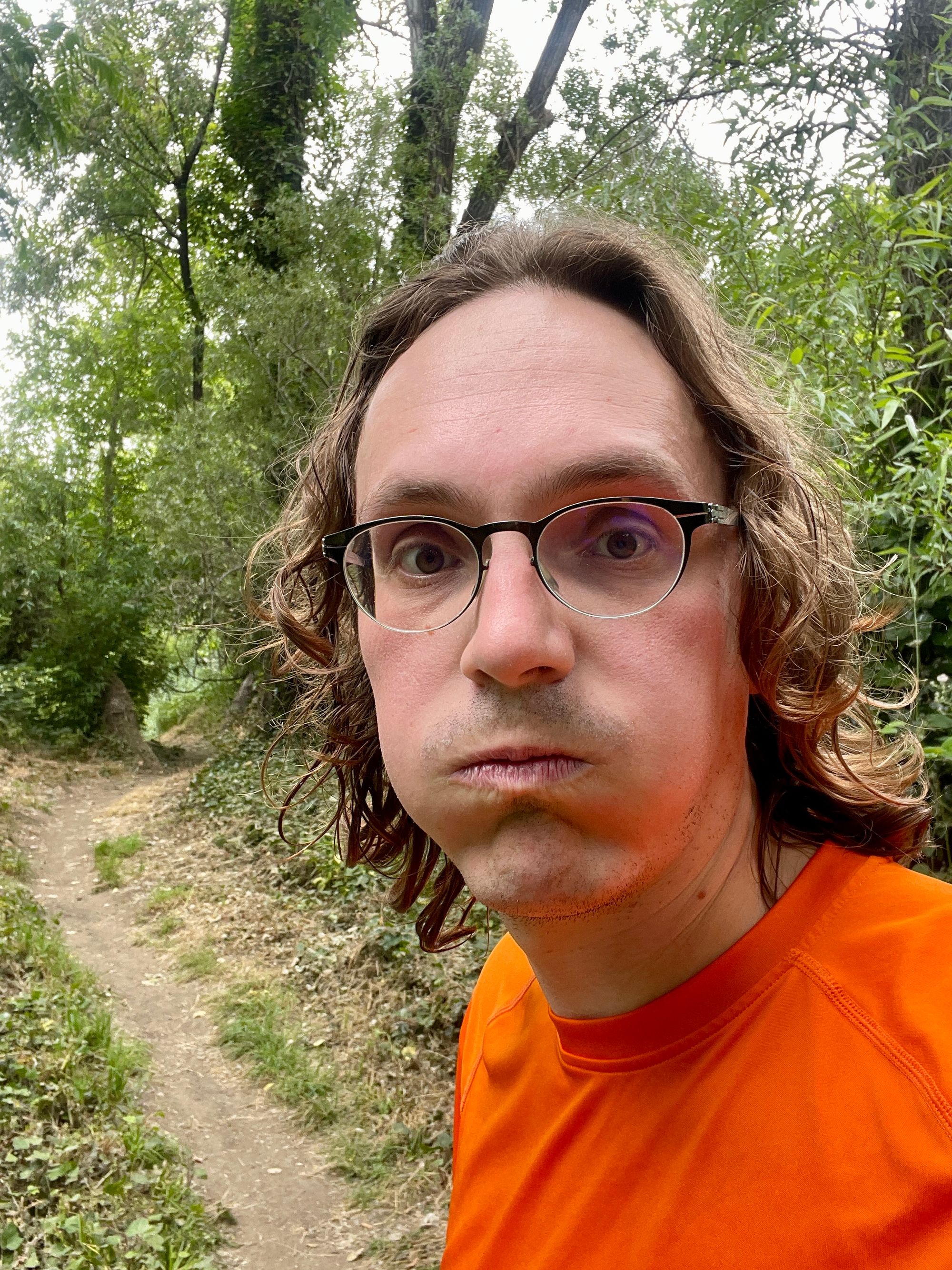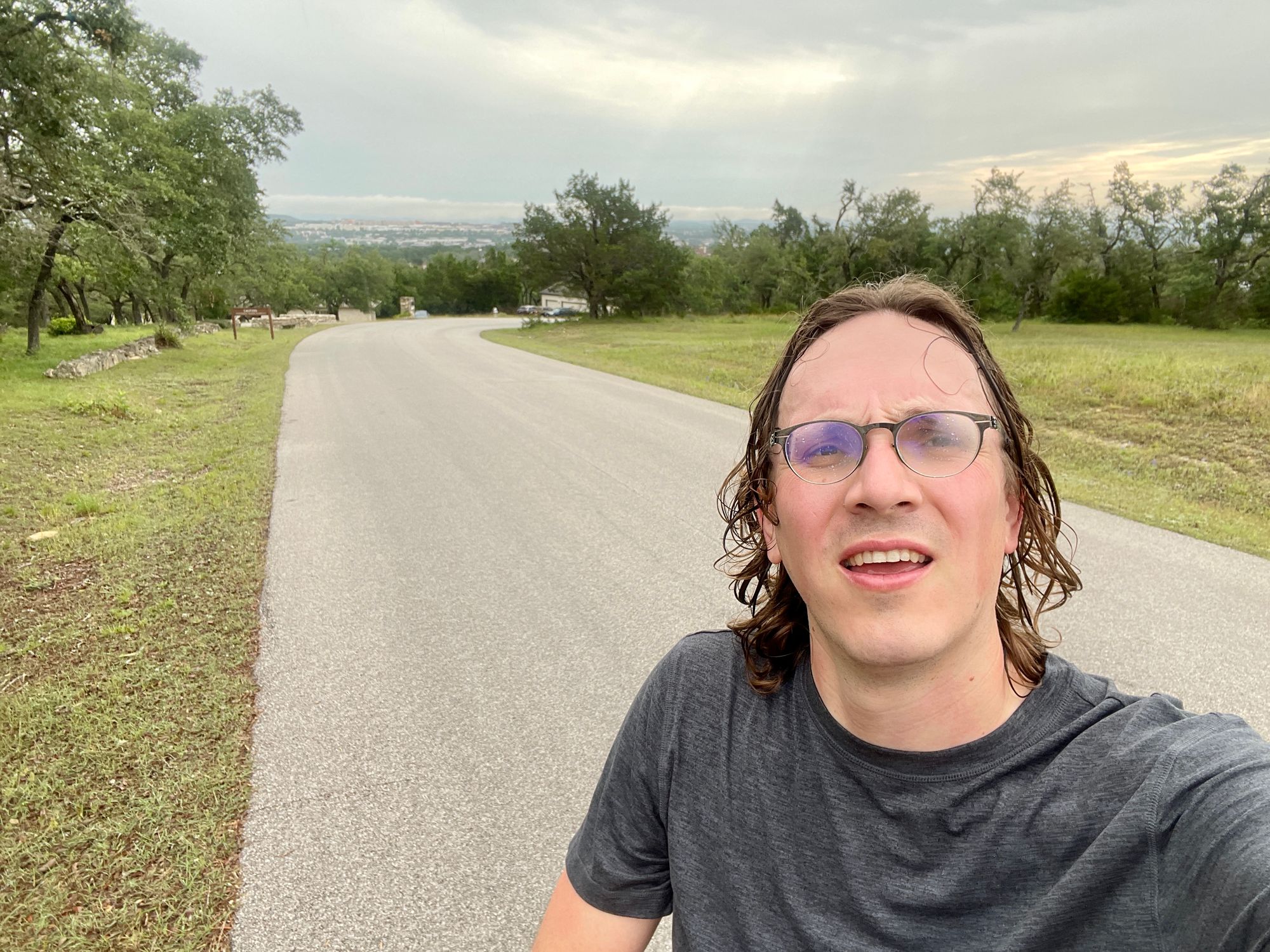In a few days I'll be running the San Francisco marathon. It will be my first marathon and my first organized race ever. I don't expect to be able to predict how things will go on race day, but I already feel incredible relief knowing that my 3 year journey is almost over.
Running a marathon has been on my bucket list since college, but I've never been motivated to run. When I played baseball, running meant sprinting. Jogging any kind of distance was boring and frustrating, so after college I gravitated towards climbing and lifting weights. I'd run the marathon when I was old and wasn't motivated by powerful movements, I told myself.
In 2020, the world shut down. Gyms were some of the first casualties. 2 months into lockdowns and social distancing measures, I started to feel the negative effects of my new sedentary lifestyle, both mentally and physically. My friend convinced me to go out on his running route with him, and I suffered through the 4 miles of San Francisco hills. I didn't enjoy any part of it, but I knew I needed to do some exercise.
6 month later, gyms were still enable to stay open. In the dead of winter, alone for the holidays, I found a routine that kept me going: wake up, run 3 or 4 miles, shower, make coffee, work till 4 or 5, then watch a movie or play video games. I did this almost every day and almost started looking forward to the wakeup run.
I realized in January that I was in by far the best cardiovascular shape of my life. I had never run this often or for this much distance before. If I was going to do a marathon, now might be the time. I signed up for the 2021 San Francisco half marathon.
I never actually ran in that race. A friend had a wedding on the day of the race, so I ran the half marathon the week before as a "virtual" competitor. I made it fun: I ran the exact route that the race would take at exactly the same time it would happen, just one week earlier. The only difference was there was no one, and I mean no one, awake on the course when I started moving. I finished the distance in under 2 hours, which I'm pretty proud of. I committed to the marathon the next year.

I still didn't like running, but the marathon was my ticket to never run again, should I choose to. I'd run a marathon; who could doubt that I'd tried running and decided I just didn't like it?
As I mentioned last year, I failed to attend last year's SF marathon. A few weeks before the race I fell ill with COVID-19 and could barely make it up the stairs. It was likely for the best. My body was aching and on the edge of failure, but I pushed it on to try to get the race done.
I spent 8 months recovering from all the damage I'd done to my body, leaving only 4 healthy months to train for the race. In those first few months of not running I consumed an unhealthy amount of beer, so a nontrivial amount of time was spent just getting my new weight off my frame. Still, 4 healthy months might be plenty if my training was good.
My training philosophy
How do you motivate yourself to do something you don't like doing? To make it even more complicated, how do you convince yourself to do that thing when it's completely optional?
The marathon is the goal.
Sometimes we can get lost in expectation inflation, most commonly found with lifestyle inflation. As we get better at something (like earning money), we start to expect more from ourselves and the world (like getting nice things). That's normally fine; if I were to get better at chopping onions, I would start expecting higher quality and/or faster chopped onions during meal preparation.
But this inflation can lead us to forget why we're doing something in the first place. Constantly reminding myself, and others, and the marathon is my goal helped me in 2 ways:
- I didn't want to be disappointed with my time after the race. I want to finish the race excited about the effort level I was able to give.
- As I got better at running long distances, it might be tempting to try to run the marathon distance as a warmup for the race. But the race is not my goal, the marathon is. Why run the race if the bucket list item got checked off? All my training runs would be well under 26 miles.
Practice failure.
Almost everyone I've talked to has disagreed with me on this one. In my opinion, growth can only be achieved by experiencing failure, learning what forms it comes in, and then being able to adjust effort levels based on that experience later. The might be a remnant of my lifting self, where pushing up against failure is actually necessary to elicit muscle growth.
Pushing myself to failure is the only part of running I've consistently enjoyed. My standard 5 mile run includes 3 very steep sections (>18% grade) where I can toggle different knobs to burn out my lungs or my legs (or both!). I can also pre-exhaust and try to shift into a gear that lets me run all the way through the steep bit, even when the tank feels empty. As I got better at running and managing my gears, I started to "actively recover" after the steep bits, where I ratchet down my effort level to a point that I can regulate my breathing again and keep my legs from giving out.
Knowing that I enjoy pushing to (near) failure, my workouts were easy to prepare for:
- I would push to 100% effort at least once per run. If my vision doesn't narrow, I didn't try hard enough.
- My base running route would be to run down the hill, around the neighborhood, and back up. This was about 3 miles and 500 feet of elevation, and worked well for me as I finished recovering from my injuries.
- Once I could run a distance without stopping, I could extend the route, but only if it went up something steep.
This worked well up to about 9 miles and 1200 feet of elevation. I feel like my lungs and legs are in incredible shape for someone who only spent 6 months training with any regularity, and 4 months training without lower body pain. I credit my philosophy of pushing to the point of narrowing vision on getting me there.

It's all mental.
I felt physically race ready 3 weeks ago. My long runs were now 16 miles, and I finished my runs thinking I could have gone another few miles if I wanted. There was no more cramping, no more soreness, no more tired lungs. My long runs have never been longer than 17 miles, and I'm not planning anything more than 10 before the race at this point.
It is my opinion, having never run anything close to the marathon distance before, that once you reach a certain level of muscular and cardiovascular fitness, there are only one thing (outside of injuries) keeping you from running a marathon: mental fortitude.
I'm familiar with injuries: during my first half marathon, I sustained stress fractures in both feet around mile 9. And yet I ran the final 4 miles. These days I start to feel my knees and hips around mile 12. Could I run the last 14 miles in pain?
Today? No. On race day? Absolutely.
Failing the marathon is not an option. Stopping during the marathon is not an option. It can be difficult to describe the state I will attempt to be in on race day, but the concept is to make it impossible to stop running. I will put myself into a mental position where the non-action is to run. I will not push to move forward or take the next stride, I am going forward and will need to fight myself to stop.
This state of mind can be difficult to maintain for any significant amount of time. I expect to struggle to keep this focus, but knowing that this could be the last time I ever voluntarily run may well be enough to keep the spirit focused.
Race day
Race day should be the easy part. I'm doing everything right: I haven't had any alcohol in 3 weeks, I've been sleeping well, I've been hydrating aggressively, and I've eaten plenty of carbohydrates. The hard part will be waking up early to go to the start line. Once I start running, I have no doubt I'll be able to complete the distance.
We'll see what actually happens on race day.

